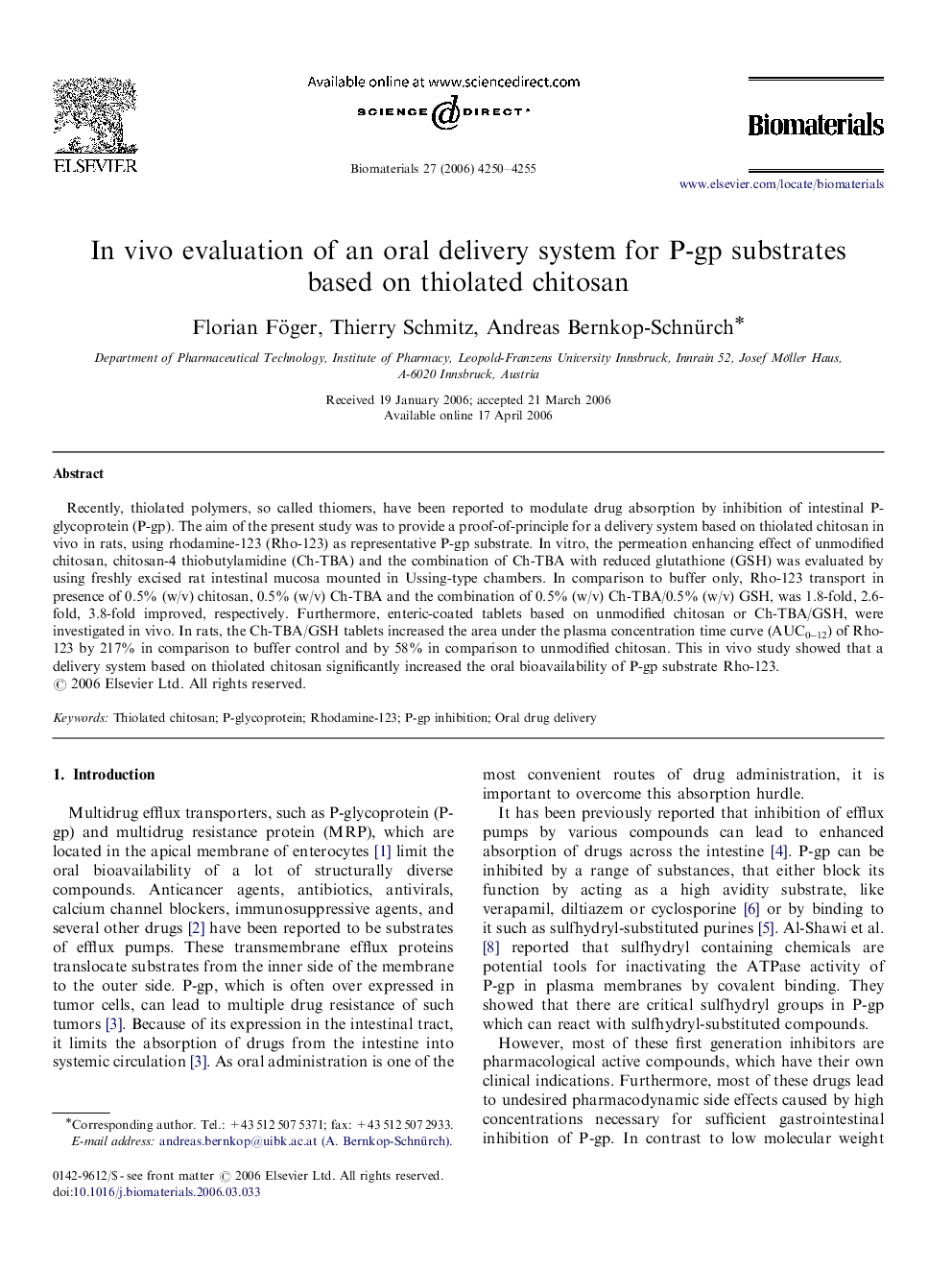| Article ID | Journal | Published Year | Pages | File Type |
|---|---|---|---|---|
| 10230144 | Biomaterials | 2006 | 6 Pages |
Abstract
Recently, thiolated polymers, so called thiomers, have been reported to modulate drug absorption by inhibition of intestinal P-glycoprotein (P-gp). The aim of the present study was to provide a proof-of-principle for a delivery system based on thiolated chitosan in vivo in rats, using rhodamine-123 (Rho-123) as representative P-gp substrate. In vitro, the permeation enhancing effect of unmodified chitosan, chitosan-4 thiobutylamidine (Ch-TBA) and the combination of Ch-TBA with reduced glutathione (GSH) was evaluated by using freshly excised rat intestinal mucosa mounted in Ussing-type chambers. In comparison to buffer only, Rho-123 transport in presence of 0.5% (w/v) chitosan, 0.5% (w/v) Ch-TBA and the combination of 0.5% (w/v) Ch-TBA/0.5% (w/v) GSH, was 1.8-fold, 2.6-fold, 3.8-fold improved, respectively. Furthermore, enteric-coated tablets based on unmodified chitosan or Ch-TBA/GSH, were investigated in vivo. In rats, the Ch-TBA/GSH tablets increased the area under the plasma concentration time curve (AUC0-12) of Rho-123 by 217% in comparison to buffer control and by 58% in comparison to unmodified chitosan. This in vivo study showed that a delivery system based on thiolated chitosan significantly increased the oral bioavailability of P-gp substrate Rho-123.
Related Topics
Physical Sciences and Engineering
Chemical Engineering
Bioengineering
Authors
Florian Föger, Thierry Schmitz, Andreas Bernkop-Schnürch,
